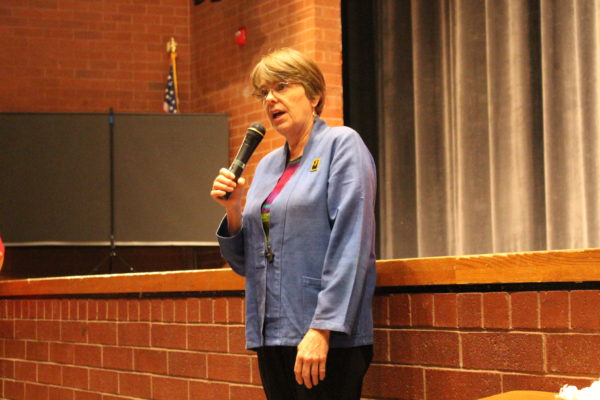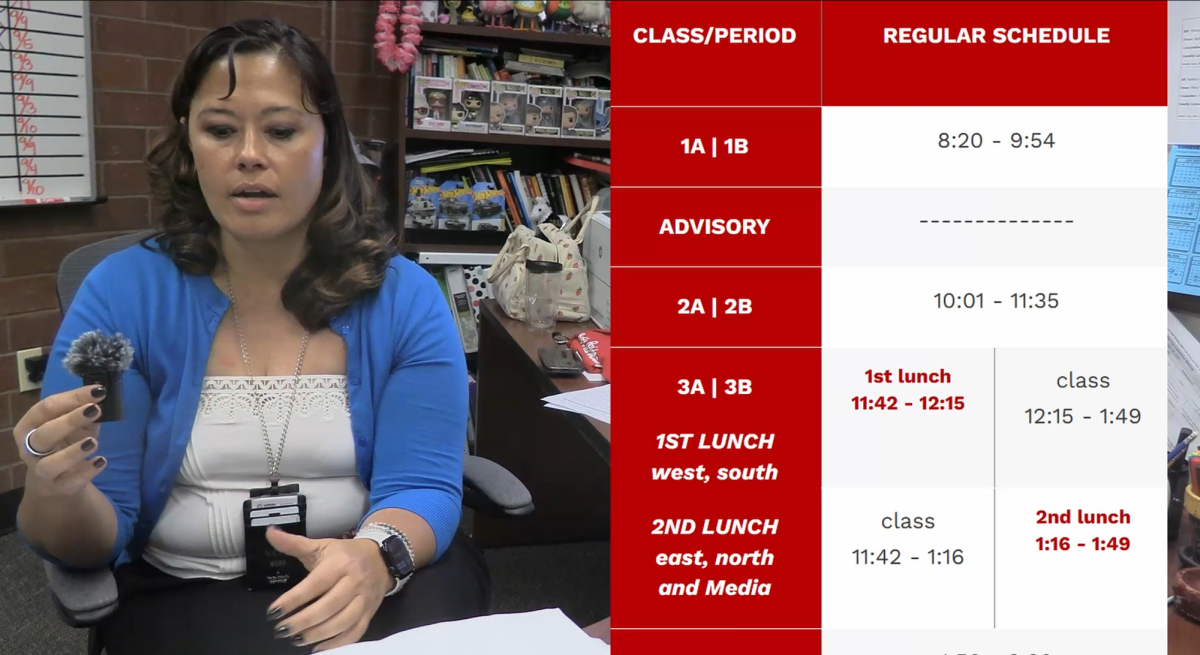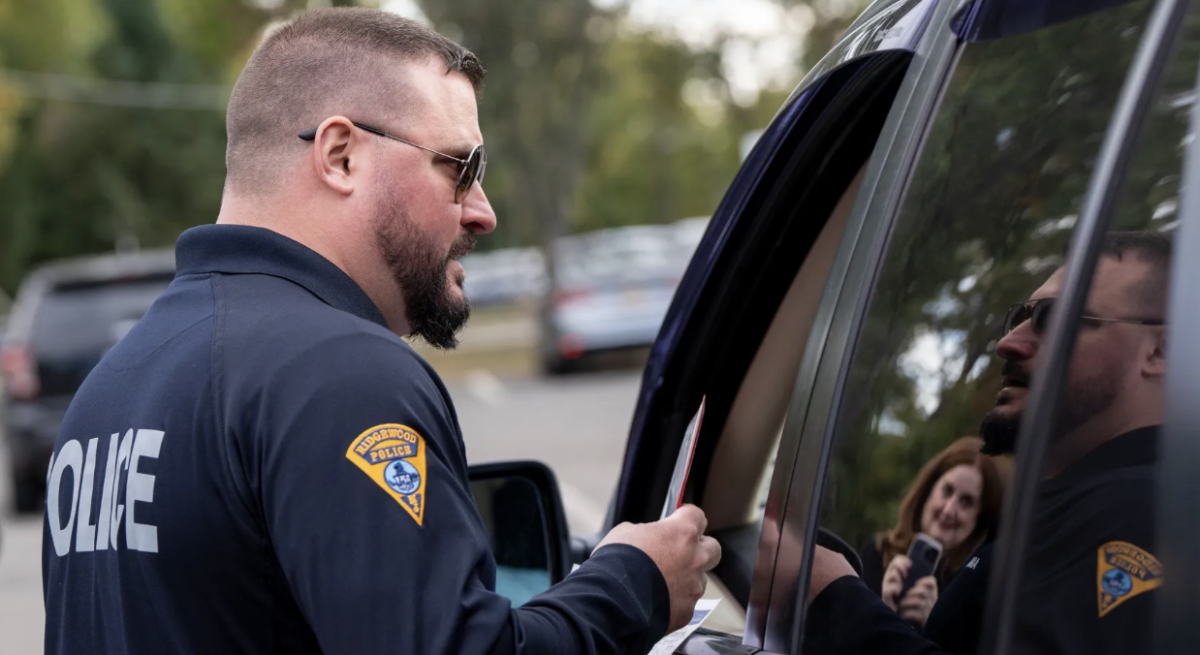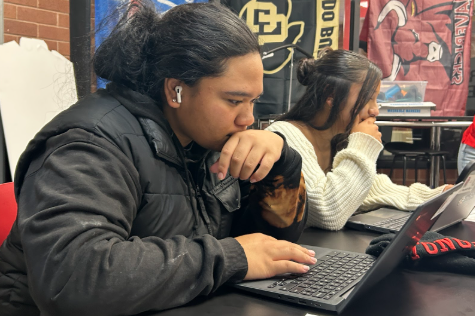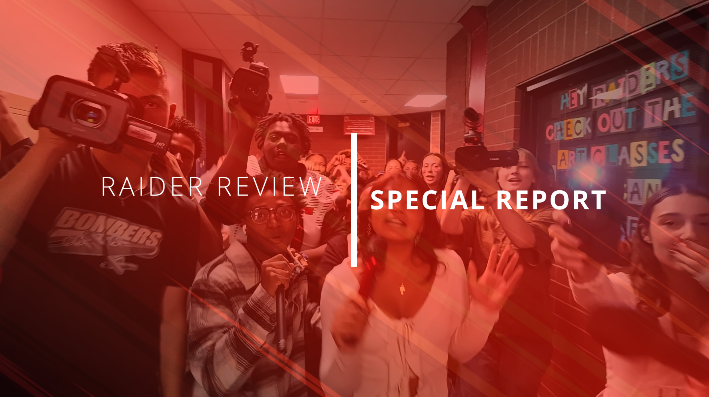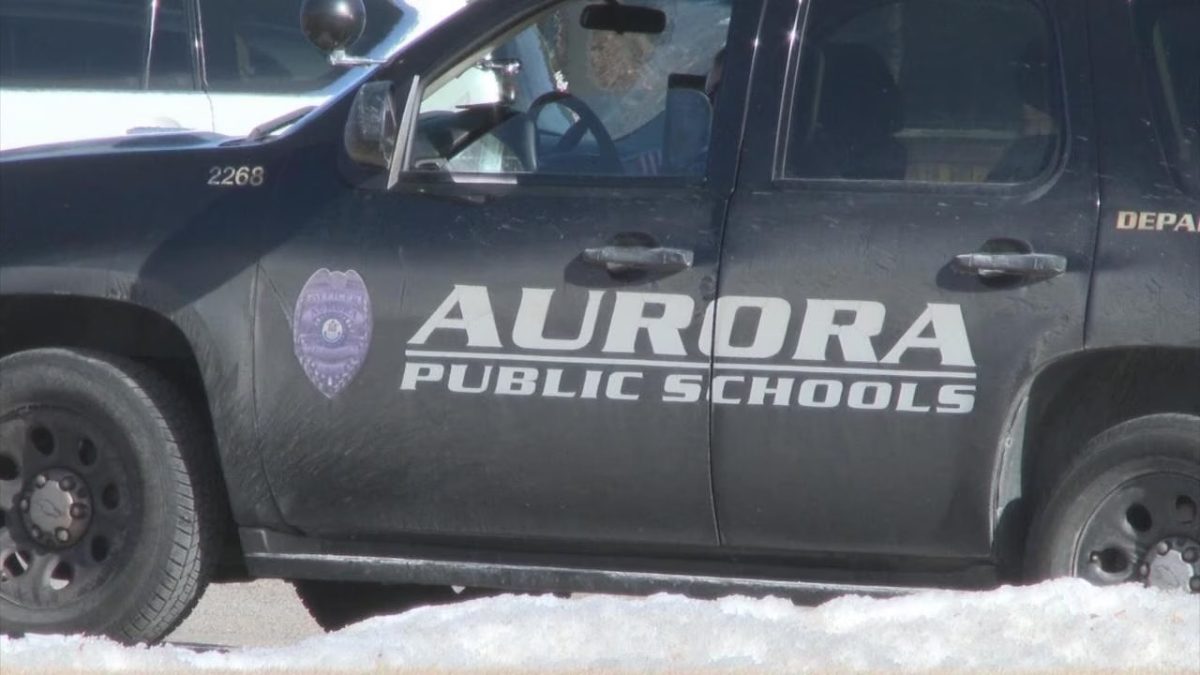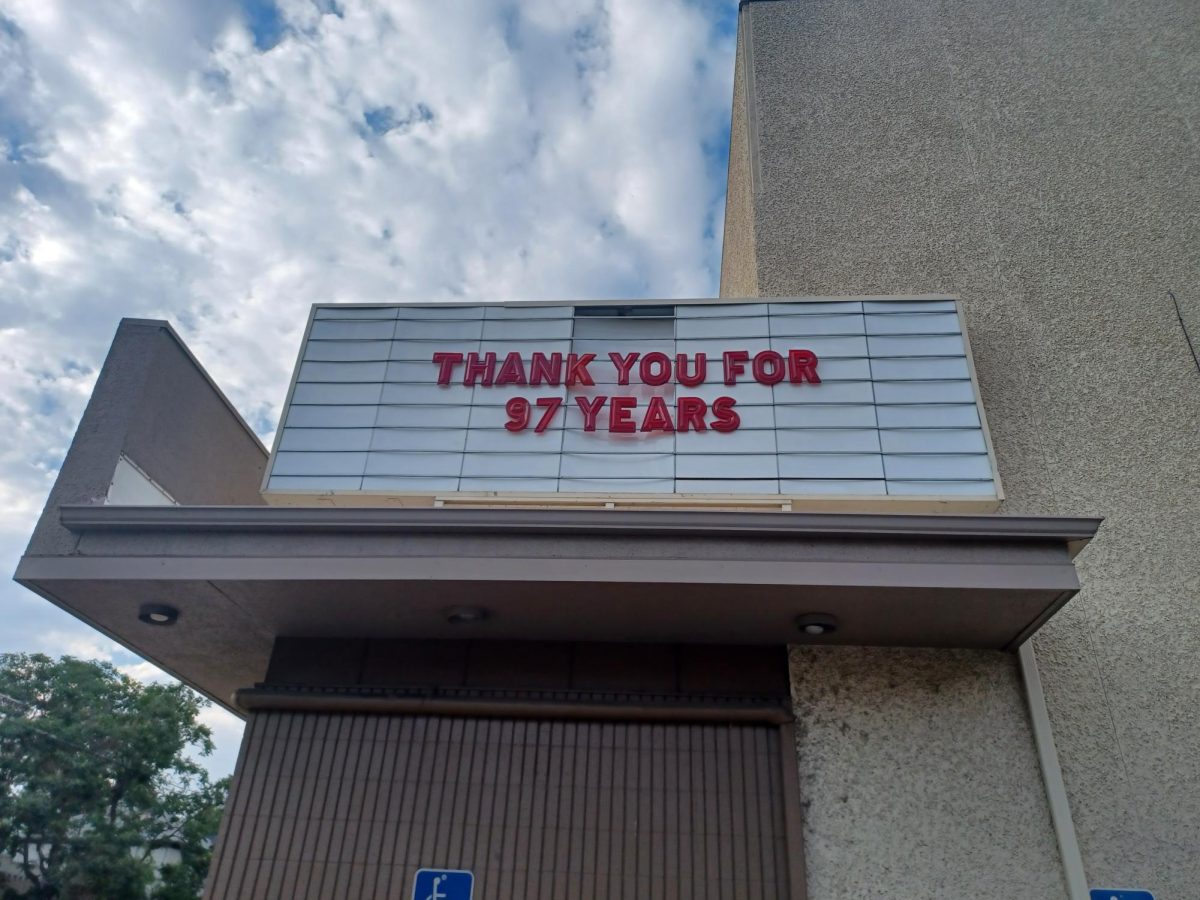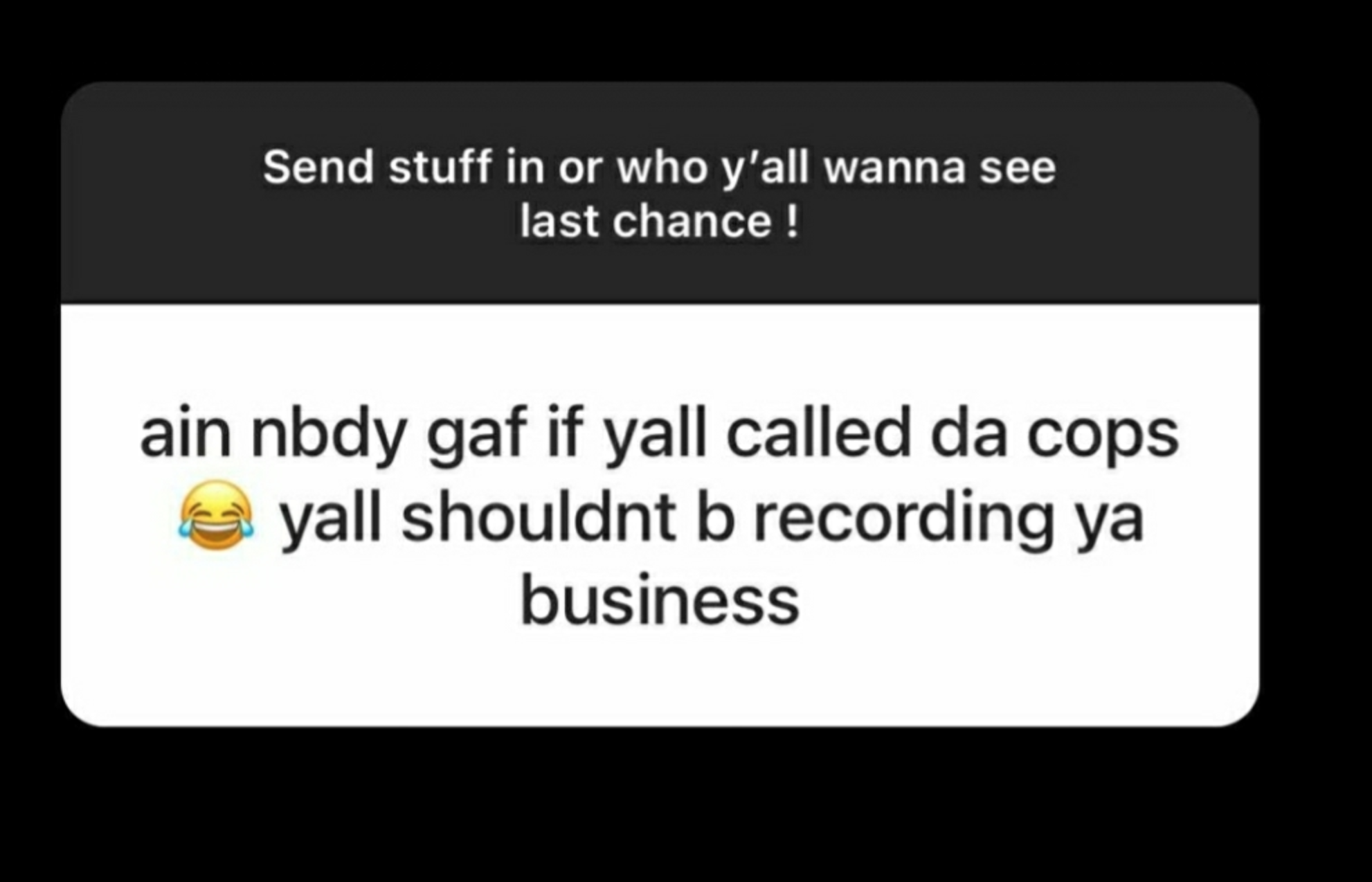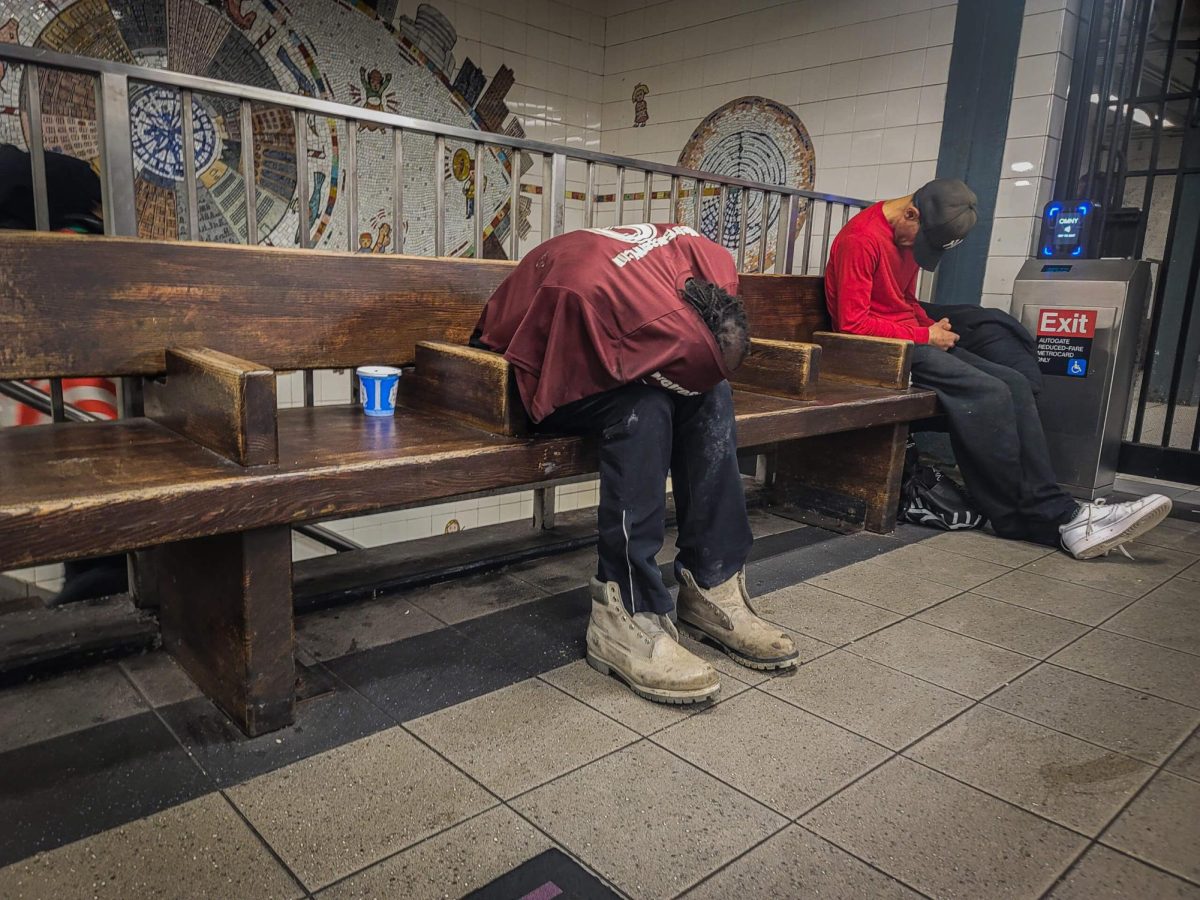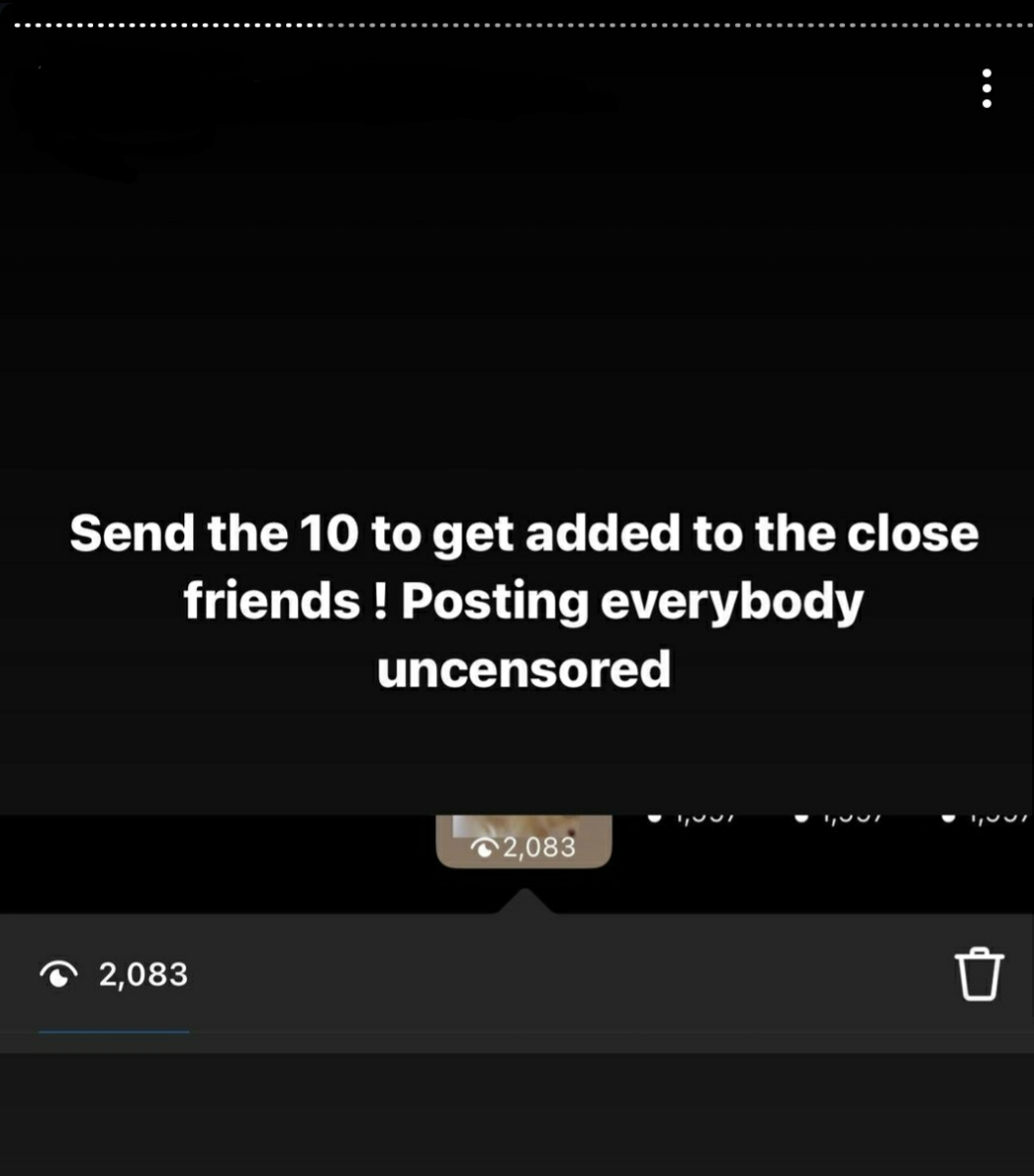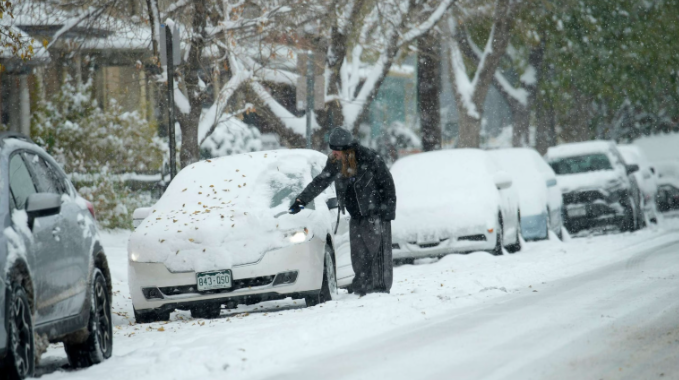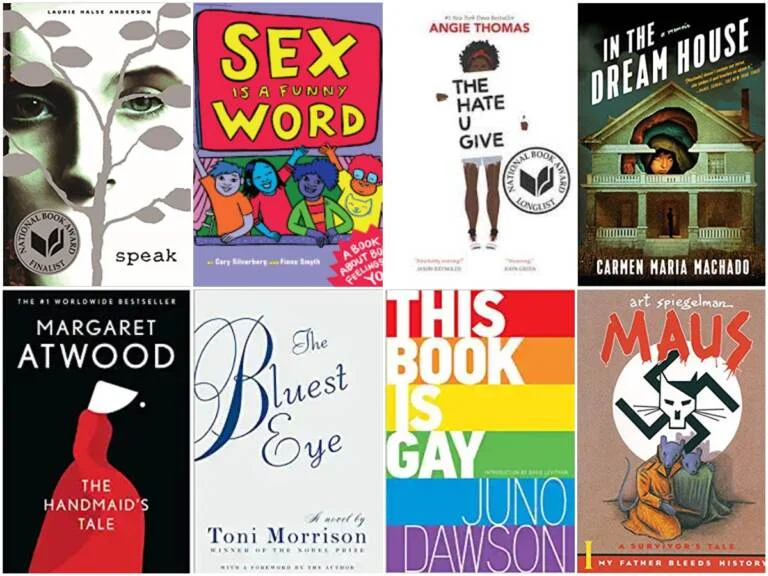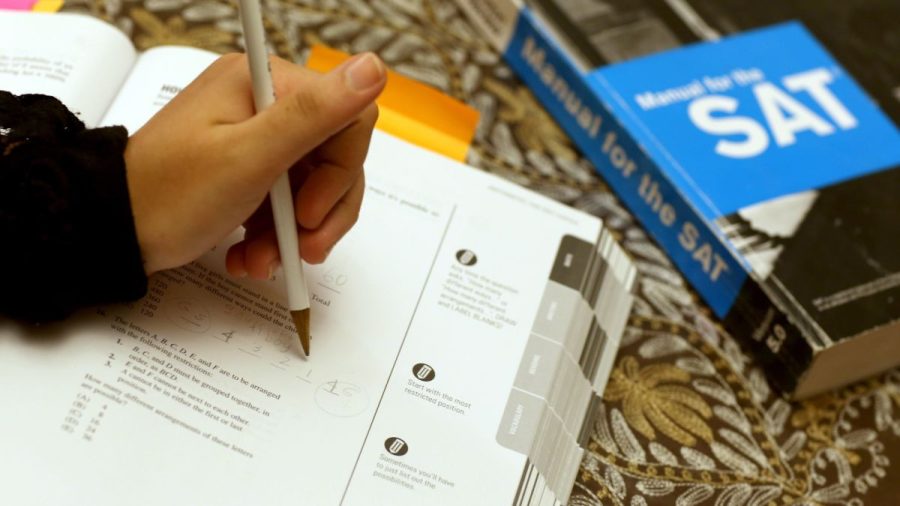Feature Photo By: Myriam Alcala – Mary Beth Tinker informs Rangeview civics students on her Supreme Court case. Ms. Tinker is currently touring across the United States as a part of her fall 2018 itinerary.
On Wednesday, September 26th, Youth Rights Activist Mary Beth Tinker and Colorado Supreme Court Justice Melissa Hart visited Rangeview. Together, they held a discussion in the auditorium with Rangeview civics students regarding First Amendment rights pertaining to freedom of expression and speech in schools.
“I think Mary Beth Tinker is a great advocate, especially when it comes to diversity, as it pertains to the First Amendment and student voice,” said senior Bolu Folarin after listening in on the discussion. “…by having Ms. Tinker here, students are further able to perpetuate the idea that there is no such thing as being too young to have a voice.”

Prior to the discussion, I got the opportunity to interview Ms. Tinker (and Justice Hart at a later time). Below are the questions I asked Ms. Tinker. My questions are in bold; Ms. Tinker’s answers are in italics.
How would you describe your title?
I’m a retired RN, and I consider myself a youth rights activist or a First Amendment activist — but really they go together.
In your own words, how would you explain your supreme court case, Des Moines v. Tinker, to someone who knows nothing about it?
In 1969, the Supreme Court, by 7-2, ruled that students in public schools have a constitutional right to freedom of expression with the exceptions that they cannot substantially disrupt school, or impinge on the rights of others. What that means exactly has been debated ever since… but there were three plaintiffs, and I was one of them. We wore black armbands to school to mourn the dead in Vietnam on both sides of the war, and we were told by the administration that we could not do that. So the American Civil LIberties Union (ACLU) took the case to court where we prevailed. It was a great victory for students all over the country — and it still is.
Why do you think it’s important for students to have a voice?
Students have great ideas, like all young people. Without your voices, contributions, and ideas, the whole society is cheated. We [society] need you, we all need you. We need you to chime in and contribute your energy, your creativity, your ideas, your knowledge of social media, all of it, to make a better world! We’re not gonna settle for this. We’ve got so much inequality — children being poisoned by lead in Flint, Michigan, war war war, school budgets being cut… that is not right! You young people should have everything you need, and kids are a low priority in our society. It’s no wonder the biggest age group for poverty is children and teenagers. I was just reading that some of the funds that had been intended for young people are now gonna be used to build more… basically jails, for children at the border. So these kinds of issues, you young people should be able to weigh in on it.

What do you want students to gain from your experience?
My message is that when you find issues that you care about and that you want to change, then it’s a great way of life to use your First Amendment rights to speak up about those issues and to take action. You’re not going to win all the time, but it’s still a good way of life. You meet very wonderful, interesting people like I’m meeting you today Dominique, and sometimes it’s even fun like it was today to be with all of the students here.
What is your stance on the Hazelwood v. Kuhlmeier case?
I think the Hazelwood case was decided wrongly, and fourteen states now have passed legislation to say the same thing, to say that their students in their state should have rights in journalism. Colorado was one of the first in 1990, so Colorado students can be very proud of that, and journalism advisers as well who worked very hard to make that happen.
As the interview was wrapping up, I had one more personal question to ask Ms. Tinker.
My last question was sparked by what you were speaking on during the discussion earlier with your parents staying the night at a house that was shot at. Can you talk about that again? I know it gave you some inspiration to fight back against injustice.
My parents went to Mississippi in the summer of 1964 as part of Freedom Summer because my father was a Methodist minister. My parents are white, but they believed in what they preached in church and what they learned in our democracy: that there should be equality, we should be loved, we should be a brotherhood. We can’t just talk, talk, talk about these things, we have to put them into action. So they went there, and when they were there in Freedom Summer they were staying at the house of an older black lady, and she said, ‘you should sleep in the back tonight because when the shooting starts, you’ll be safe back there.’ So they were scared and everything but they went in the back. In the middle of the night, the shooting started. They went up to the front where the woman was crouched by the window, and it was a dark night in Ruleville, Mississippi. They looked out the window and there was a pick-up truck out there, and the guy in it was shooting at her house, and had just shot and killed her dog. My mother told me that they’d said, ‘let’s call the sheriff,’ and the lady said, ‘we can’t do that honey, that is the sheriff.’

They lived through that night and they ducked down until the guy eventually drove away. Stories like that and others that they also brought us from their time in Mississippi taught us kids with their example. It taught us to speak up and to do something when you see something that’s not fair.
Concluding the interview with Ms. Tinker, I later spoke to Justice Hart who taught law at CU Boulder before becoming a Supreme Court Justice for Colorado in December of 2017.
Justice Hart stated, “I believe that you students are doing a very important things, as journalism is the basis of our democracy.”
As a student who capitalizes on having a voice, it was an honor to listen and be enlightened by the words of wisdom that Ms. Tinker and Justice Hart provided to myself and other students alike.
To learn more about Ms. Tinker, click here.
To learn more about Justice Hart, click here.
